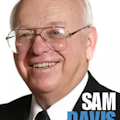Patent Litigation Affects Intermediate Bus Architecture Converters
Find a downloadable version of this story in pdf format at the end of the story.
SynQor, Inc. announced that it has prevailed in its patent litigation suit against industry suppliers of unregulated and semi-regulated bus converters used in Intermediate Bus Architecture applications (SynQor, Inc. v. Artesyn Technologies, Inc. et al).
SynQor asserted five patents against 11 of the largest industry suppliers of unregulated and semi-regulated bus converters in the US District Court for the Eastern District of Texas. In a unanimous verdict, the jury found that each of the 11 defendants infringed one or more of SynQor's patents and upheld the validity of all such patents.
In addition, the jury awarded SynQor collective damages in excess of $95 million against Artesyn Technologies, Inc., Astec America, Inc., Bel Fuse Inc., Cherokee International Corp., Delta Electronics, Inc., Delta Products Corp., Lineage Power Corp., Murata Elec. North America, Inc., Murata Manufacturing Co., Ltd., Murata Power Solutions Inc., and Power-One, Inc.
The patents are similar to the 7,564,702 patent (figure).
HIGH EFFICIENCY POWER CONVERTER
Issued: July 21, 2009
United States Patent 7,564,702
A power converter nearly losslessly delivers energy and recovers energy from capacitors associated with controlled rectifiers in a secondary winding circuit, each controlled rectifier having a parallel uncontrolled rectifier. First and second primary switches in series with first and second primary windings, respectively, are turned on for a fixed duty cycle, each for approximately one half of the switching cycle. Switched transition times are short relative to the on-state and off-state times of the controlled rectifiers. The control inputs to the controlled rectifiers are cross-coupled from opposite secondary transformer windings.
Inventor: Schlecht; Martin F. (Lexington, MA)
SyncQor, Inc. (Boxborough, MA)
Appl. No.: 11/901,263
Filed: September 14, 2007
VERDICTS OF A SMALL TOWN PATENT JURY IMPACT POWER SUPPLY INDUSTRY
SOME OF THE APPROXIMATELY 25,000 residents of Marshall, Texas are playing a major role in the future of the power supply industry. First, Power-One and then SynQor took advantage of the Marshall patent lawsuit juries.
In November 2007 a jury in the U.S. District Court for the Eastern District of Texas, Marshall Division, upheld the validity of the Power-One Z-One® digital power management and control patents. These patents affected the use of the PMBus and other associated digital techniques for dc-dc POL converters.
In December 2010, SynQor's patents for unregulated and semi-regulated bus converters used in Intermediate Bus Architecture applications were upheld by a Marshall jury. In a unanimous verdict, the jury found that each of the 11 defendants infringed one or more of SynQor's patents and upheld the validity of all such patents. Power-One Inc was one of the defendants in the SynQor case and said it will pay $25.6 million in damages related to the patent infringement case.
An unusual number of patent lawsuits are being filed in the United States District Court for the Eastern District of Texas which includes Marshall, Tyler, and Texarkana. Marshall has a reputation for plaintiff-friendly juries for the 5% of patent lawsuits that reach trial, resulting in 78% plaintiff wins. The number of patent suits filed in 2002 was 32, and the number for 2006 has been estimated at 234.
What is remarkable about these trials, is that both large and small companies wound up in the Federal District Court in Marshall. The city will handle more patent lawsuits than will be filed in 2010 than in federal district courts in San Francisco, Chicago, New York and Washington. Only the Central District of California, in Los Angeles, will handle more patent infringement cases.
Speed to jurisdiction is the main reason locations are chosen for litigation. The Sixth Amendment to the U.S. Constitution provides defendants the right to a speedy trial. Patent infringement cases are held in Federal Courts. Marshall happens to be one of the few Federal Courts with patent experience. The Federal Court in the Eastern District of Virginia got the name “Rocket Docket” for the speed and efficiency of bringing cases to trial. Since then other Federal Courts have quickened their pace to hear litigation, including California, Wisconsin and Texas.
Due to the cost of bringing patent litigation before a jury, corporations to do not bring cases to court unless they are fairly sure their patent registration will be upheld. Time and revenue taking a case before a Federal Court is a daunting task. Even with the rapid cadence of the SynQor lawsuit against the 11 defendants the case which was begun in 2007 has just been decided on the edge of 2010 leaving a three-year trail of lawyer fees.
Find a downloadable version of this story in pdf format at the end of the story. Download the story in pdf format here.
About the Author

Sam Davis
Sam Davis was the editor-in-chief of Power Electronics Technology magazine and website that is now part of Electronic Design. He has 18 years experience in electronic engineering design and management, six years in public relations and 25 years as a trade press editor. He holds a BSEE from Case-Western Reserve University, and did graduate work at the same school and UCLA. Sam was the editor for PCIM, the predecessor to Power Electronics Technology, from 1984 to 2004. His engineering experience includes circuit and system design for Litton Systems, Bunker-Ramo, Rocketdyne, and Clevite Corporation.. Design tasks included analog circuits, display systems, power supplies, underwater ordnance systems, and test systems. He also served as a program manager for a Litton Systems Navy program.
Sam is the author of Computer Data Displays, a book published by Prentice-Hall in the U.S. and Japan in 1969. He is also a recipient of the Jesse Neal Award for trade press editorial excellence, and has one patent for naval ship construction that simplifies electronic system integration.
You can also check out his Power Electronics blog.